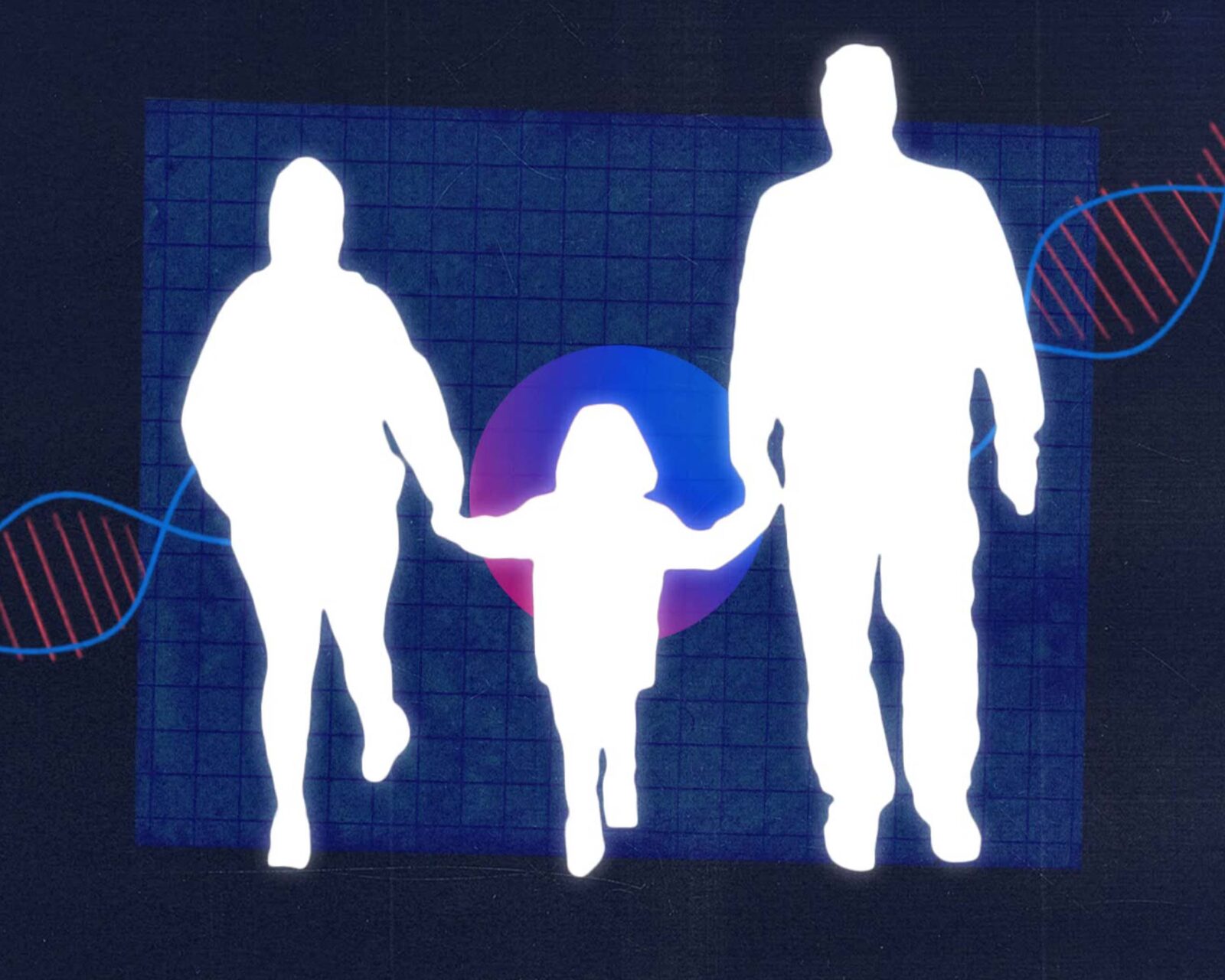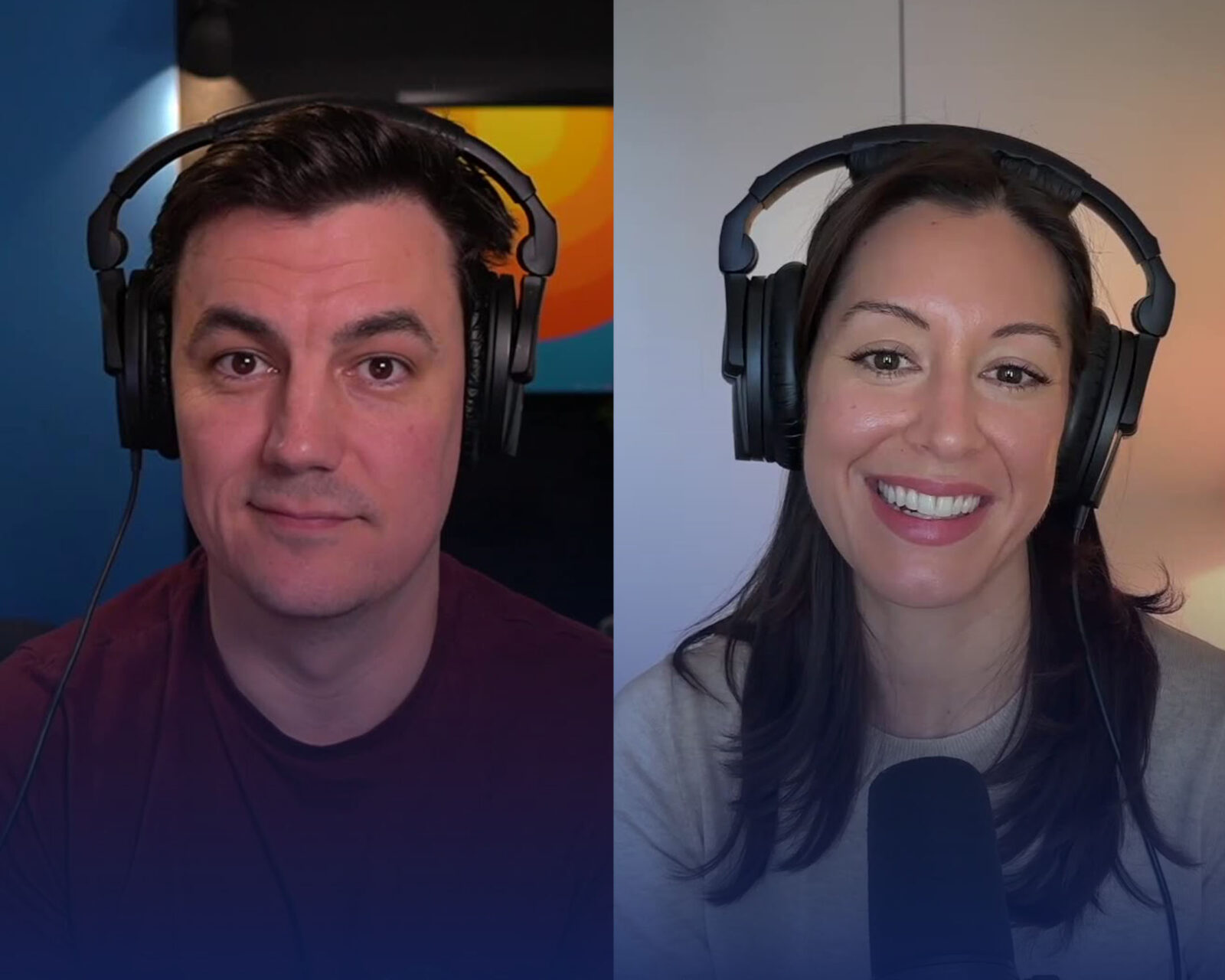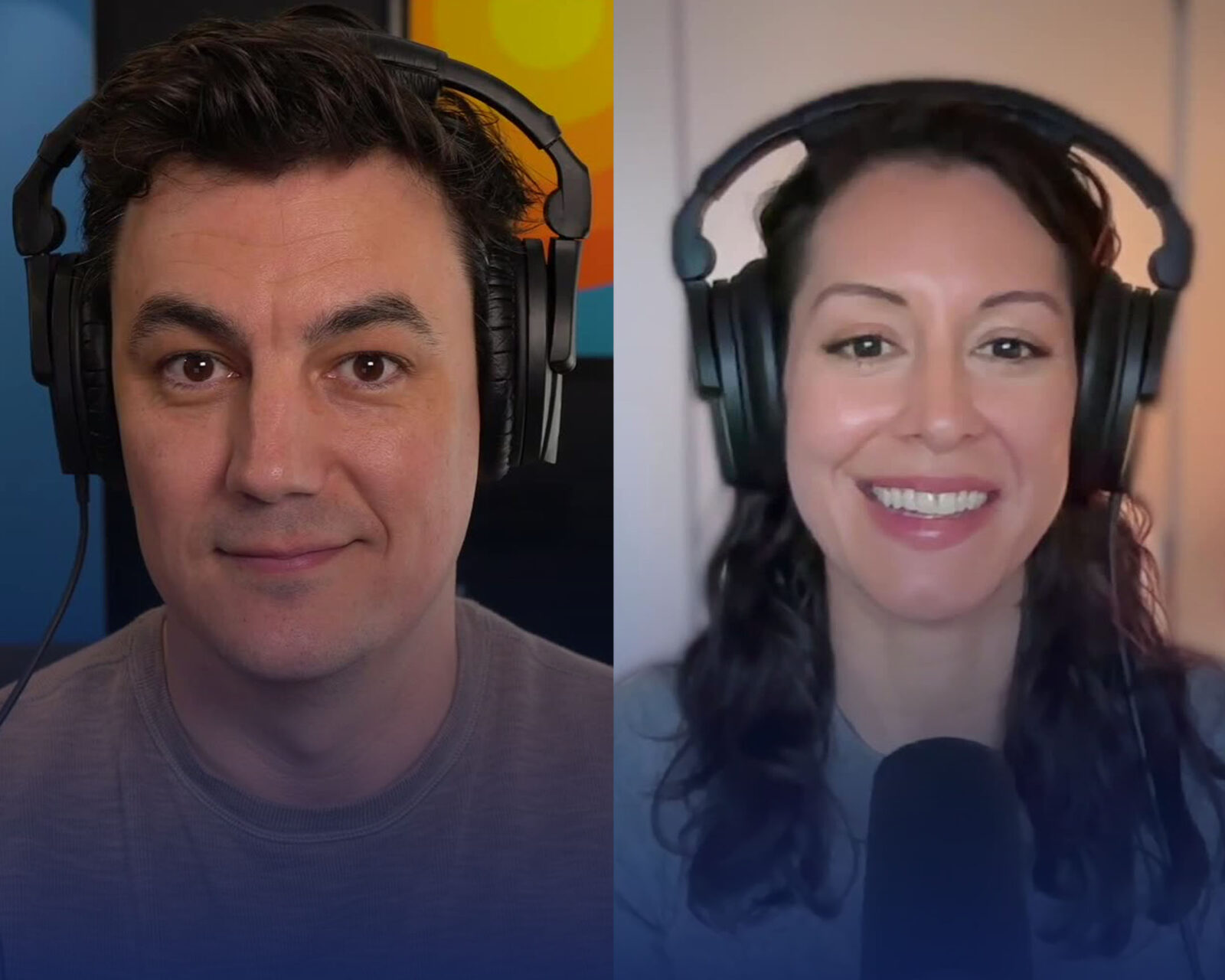Proclamation
Why parents matter more than you think

In this conversation, guest Brya Hanan joins to discuss the Fourth Commandment, trauma, healing, and the challenges of parent-child relationships.
00:00 Brya Hanan explains her journey into therapy, highlighting her passion for helping marginalized individuals and exploring the integration of psychology and faith. She emphasizes the importance of holistic healing and discusses the evolution of trauma awareness in therapy, shedding light on trauma-informed approaches. Edmund introduces the complexities of parent-child relationships, setting the stage for a nuanced exploration of presenting the Fourth Commandment in evangelization and catechesis while navigating family dynamics.
07:27 The discussion shifts to the trend of young adults estranging themselves from parents due to trauma and the challenges within parent-child relationships. Brya explains how trauma affects attachment bonds, emphasizing the significance of emotional safety. She delves into the stressors parents face and their impact on relationships, advocating for healthy boundaries and tough conversations. Practical advice includes therapy, prayer, and discernment guided by the Holy Spirit.
14:33 Brya discusses the importance of listening to the Holy Spirit and discerning how to respond when someone is sharing difficult family dynamics. She advises pointing individuals toward healing resources like therapy and spiritual direction. Edmund explores differentiating between common family challenges and more serious issues.
20:52 Brya suggests approaching discussions around family challenges with curiosity and empathy, drawing from personal experiences to gently guide individuals towards resources like therapy and spiritual direction. She emphasizes the importance of emotional regulation and attunement in parent-child relationships, fostering trust and authentic faith. Resources include books on attachment theory and articles exploring the link between healthy attachment and one’s relationship with God.
Proclamation

Explanation

Connection

Edmund Mitchell: Hi everyone. Welcome back to The Real and True Podcast. I’m one of your co-hosts, Edmund Mitchell, and today we have a fantastic episode planned for you. We’re going to be talking with Brya Hanan about trauma and about families, and about honoring your mother and father and the Commandments. So Brya, thank you so much for being here. I’m very excited to have this conversation.
Brya Hanan: Yeah, thank you so much for having me. I’m honored.
Edmund Mitchell: So for people who don’t know you—which they should—you are a Catholic licensed marriage and family therapist, certified family trauma specialist who owns Hanan Hope and Healing—which is a private practice in Arizona. And Brya does this amazing thing of creating webinars and workbooks to help people befriend their inner child—which we’re going to talk about a little bit—and experience holistic healing. You have this practice where you’re providing therapy for families and for individuals and striving to create an experience that heals the mind, body, and soul. You’re also the author of an amazing book God Whispered Gently, a children’s book that Brya wrote about her own inner child. And then you have this new book that came out recently: Befriending Your Inner Child: A Catholic Approach to Healing and Wholeness. How does that sound? Was that a good bio background on you? Sweet. Well, maybe you could share with people before we dive in, because we’re going to be talking about honoring your mother and father and what can be sometimes a tricky relationship with your parents, especially when you become an adult and you’re an adult child. But maybe you could tell people a little bit about how you got into this work. What brought you into this particular field and practice?
Brya Hanan: Yes. Yeah. So it really began when I was a child. I had this calling to help people in a deep way. And I felt very moved by people’s stories and had a special heart for people kind of who’d been marginalized. I remember being in middle school and seeing the kid sitting alone in the cafeteria table and just wanting to approach and befriend. So I think that that’s really where it all began. And then when you start exploring careers and like, “How do I make a living with that?” Sociology, counseling psychology was kind of the realm that I was exploring. And so I studied sociology in undergrad and then I started to see “Oh, I’m becoming more curious about why people do the things that they do, and the mind and also exploring trauma and family systems.”
So it led me to grad school where I studied counseling psychology and started to pursue a license in marriage and family therapy because that seemed like the best kind of place to study that and explore that more. But it was really through my own personal experience, I think, being in therapy and trying to heal my own wounds that really brought more of a passion for this work because the more I dive deeper and saw how when we become more integrated and incorporate psychology or just the mind; the body into our healing, it becomes so much more comprehensive and holistic and it brings just so much more for people. And so, kind of a little bit to add to that, I was also really practicing my faith during the time when I was in graduate school, but struggling with “Why is it not enough to bring the whole healing? Why do I still feel sad or depressed? What’s this thing going on over here with my relationships and why are these patterns still happening?”
So it couldn’t always bring me a solution or a “why.” And so then I just internalized that as “Something must be wrong with me then; something is too broken within me.” So I think that’s an important piece to add to all of this. I think it was my faith and recognizing also that there are some things that psychology can kind of help fill in that gap.
Edmund Mitchell: So people who are listening to this are trying to teach the faith and the Commandments, and then there’s this reality of the real, lived experience of being in relationship with your parents or your children. And I love that intersection there. But one other thing I’m thinking about too, that has pros and cons, is it seems like—and I’d love to get your opinion and perspective on this—therapy, in particular the word “trauma,” is getting more and more popular. Even Neil Brennan on his most recent standup special has this whole long 10-minute bit about people on social media talking about trauma. So I wonder if you could explain a little more what is trauma-informed Catholic marriage and family therapy? What does that mean for it to be trauma-informed?
Brya Hanan: Mm-Hmm. So when I use that phrase right, it really comes from learning about trauma and how it impacts our bodies, our minds, our relationship, our spirituality. It just means I have that training; that understanding of how trauma can impact us. I think it might be helpful to share a raw definition. Trauma can be anything that makes us very stressed and afraid that happens too fast, too soon, without adequate support. So it can really be a wide range of things. And for the first time in the last 20 years, we have this language. And more recently, people are talking about it more and more. So I think you’re hearing people going, “Oh, maybe I’m not crazy.” Or “All of this stuff that I’m feeling in my body or the way that my mind thinks is because of this big T word trauma.” So it can be hard for some people to maybe hear that word because it’s starting to water down a little bit. And it seems like almost everything then can be trauma, and in some definitions, yeah. And it really depends on the person and how they perceived and experienced that event and the amount of support that they had or didn’t have. So yeah, hopefully that helps too. The listeners get a little bit more ambivalent of “Oh, great, here we go, the trauma specialist.”
Edmund Mitchell: Yeah, for sure. And part of the reason we were bringing this up was because there’s a Pew Research Center study in 2023 where young adults between the ages of 18 and 34 were interviewed about the relationship they have with their parents. And it turns out parents today, overall, in general, have really good relationships with their kids, even their adult children. But it’s interesting that in another study, almost one quarter of young adults are estranged from their parents or cut off their parents in some way. And it’s interesting; this kind of trend towards citing trauma or healing as a reason to cut off either completely communication with their parents or to some degree. And so I’m wondering what you kind of make of those trends and then also what are some of the common challenges or issues within families, particularly adult children and their parents that you find a lot? What are some of the most common things?
Brya Hanan: Yeah. Well, I think it’s important to name that a lot of that trauma that we experience relationally comes from how we experience that person and whether or not they are safe and they bring kind of a level of security to us. So I know that’s even a big word too; safety. And what I mean by that is being able to feel emotionally regulated and feeling like you can be your full authentic self. And so I think it’s important to name that we are able to experience that through secure bonds with people. So I love exploring the relationship between trauma and attachment theory because we can see how when a small child doesn’t experience a secure bond with a parent, and instead maybe they experience a lot of harm, stress, fear; perhaps a lot of things that make them question their sense of worth and belonging; it creates a particular trauma that remains with you really from the cradle to the grave.
And so unfortunately, a lot of parents don’t have the understanding of what trauma is, have healed their own traumas or their deep wounds, and bring that to their children and they’re not able to develop those secure bonds. And then this reality that we all face and experience is just stress. Life can be very stressful. Just the amount of noise and busyness and demands. And when people don’t know how to regulate that stress well, they end up doing a lot of harm to others. And so I think that’s a big challenge that I see within that parent-child relationship is the parent is just stressed and they don’t know how to cope with those stressors and regulate their emotions well; they don’t even have the language for that. And then they end up kind of reacting from that in a way that’s very harmful. And then that can create a particular trauma or a distress response that now harms that attachment or that bond with the parent and child.
Edmund Mitchell: I wonder how you would set up this Commandment, “Honor your father and mother.” Like if you were walking into an RCIA class or a class with young adults or adults, and this Commandment is “Honor your father and mother,” how do you strike that balance between we’re called by God to honor our parents, but then we also have the reality of these sometimes difficult relationships or difficult personalities? What do you wish that people heard more in this context around this Commandment when it’s presented?
Brya Hanan: Yeah. I think that it can be both-and. Feeling free to say, “Yes, we need to respect our parents and see them as children of God.” Because they are; they have dignity, they have worth, they brought us life. They probably did the best that they could with the tools and knowledge that they had to raise us. And so we can honor that and respect that, and we can hold them accountable for the harm that they do. We can bring that harm to their attention. We can set appropriate boundaries when we need to. We can have tough conversations. And actually, that enhances the bond; strengthens the love and the honoring, because we see your dignity and we see your worth, and we see that in order to champion that and to help people elevate higher and to be the person they’re called to be. We need to do all the hard stuff too. But that doesn’t mean that we’re dishonoring by bringing that to their attention, or having those tough conversations, or sometimes even taking a step back from the relationship just so that we can regulate our own nervous systems and create that peace within so that we can know even how to have a healthy relationship with our parents.
Edmund Mitchell: I love that you said the both-and. It reminds me of the Catholic Church’s teaching on marriage; that marriage is unconditional; it’s forever; that divorce is a grave evil. But one thing I didn’t hear enough as a kid is the both-and of that. There’s a way to honor and uphold this marriage as a sacrament, but still have boundaries if your spouse is, for example, physically abusive or has some type of very severe addiction that’s putting your kids in danger. And there’s that both-and of honoring the sacrament, while also that doesn’t mean that people can hurt you; that you don’t also need to protect yourself. So I wonder what other tips you would give to someone or to catechists on how to help someone who says, “Look, I want to honor my mother and father, but here’s my situation. And there’s a very unhealthy relationship or there’s some abuse. I don’t want to throw around the word “abusive” too lightly, but there’s some abusive patterns either emotionally or in some other way. And I don’t know how to honor my mother and father while also protecting myself.” So I just wonder what other practical advice you would give.
Brya Hanan: Yeah. I think it’s good to point people back to healing what they could do to heal and support that. So, I think therapy is a great way to heal and work through that. And then also just prayer and listening to the voice of the Holy Spirit because—just like personally—there are many times where I’ve said “I don’t want to talk to a particular parent ever again and I don’t want any relationship” and struggled with “Am I honoring or not? Is this disobeying God’s command?” But if I listen to that voice, the Holy Spirit, and really deepen my prayer life and just bring this before God over and over and over again, I often hear what I’m supposed to do, and my job is just to follow that. And the Lord provides that grace to follow that. So even when parts of myself feel like, “No, he does not deserve it,” or whatever it is the Lord provides that grace. So I would just say being able to point people to hearing that and expressing compassion and saying, “It sounds like you might need to really heal this and here are some great resources. There’s some therapists that might help.” Even maybe bring it to a spiritual director who is a little bit more trauma informed or just has a background in understanding family systems or counseling could be really helpful. And then yeah, just reminding them to bring it to prayer.
Edmund Mitchell: Yeah. What advice would you give catechists or pastors or ministers to help them differentiate between something that just sounds like, “Hey, this is common, normal family challenges” and something that is a little more serious and could require therapy. Their experience is maybe what they know about their experience with their parents and maybe one or two other friends. So how do you help people differentiate between, “Hey, it sounds like this is just some challenging personalities” versus “Hey, either you or your parents or someone in this system; this is something a little more serious that you would really benefit from something like therapy.”
Brya Hanan: Yeah. So how do you best express that and say that to them and then know that difference?
Edmund Mitchell: Yeah. Or just in general. I guess you don’t have to talk to them necessarily in your answer, but just how do you differentiate between “The family dynamic is just challenging and lots of families have challenges” versus “Hey, there’s something more serious going on here. There’s something worth looking into a lot deeper.”
Brya Hanan: Yeah. Well, if I’m understanding the question, I think it’s always great to be curious, no matter what a person says. Even things that seem very surface level and not of anything to be concerned about. If you’re in relationship with these people that you’re catechizing, ask lots of questions and “Oh, tell me more about that.” Or “Help me understand why that has been really stressful” or “This weighs so heavy on you.” And then based on how they answer, I would trust that the Holy Spirit would work and provide good counsel in that moment and help that person who’s sitting with that person know, “Okay, this sounds a lot more extreme and they need some serious psychological help.” But I think just naturally we’re primed to be compassionate and moved by people.
So when people start opening up, you’ll see and feel your spirit moving. Like, “Oh, I’m so sorry. That sounds really awful.” So learning to trust that movement in your spirit and knowing, “Okay, based on how they just answered these questions, it’s going to require a lot more serious psychological support.” Or “I’m noticing the way that they’re responding. It does sound like it’s not that serious, but their body language is showing a lot of fear or they’re holding something.” So trusting that too of what you’re seeing and their body language, their tone because oftentimes people don’t really say the full story out of fear and shame and sometimes the catechist knows their parents or all of these dynamics that keep people from really expressing. So I would hate for someone to bring that to somebody, but if it doesn’t sound too grave enough, to dismiss that person.
Edmund Mitchell: Yeah. That’s great advice. I remember something that would happen for me was if someone wanted to talk more than one or two times a month for an extended period of time about some issues they were going through—at least for me personally—that was the point where I would suggest “Hey, I’m happy to listen and be as available as I can, but I just want to say, I’m not a therapist. You might actually benefit from a more regular approach to this.” And then I also have experienced—because I know therapy is more and more popular—but I’ve also experienced some aversion or even people getting offended if you mention therapy. I wonder if you have any advice for ministers, catechist pastors, how do you bring up that topic or suggestion “Hey, you might want to look into therapy” without it being off-putting? How do you bring that up in a gentle way?
Brya Hanan: Well, I normally don’t suggest saying, “You need psychological support therapy. You need deep help.” I think just saying “Wow, that’s not okay. That sounds really unhealthy and it sounds like it’s really hurting you.” It is enough for people to go “Oh, that’s validated. Oh, I’m not crazy. Maybe there is a reason why I am holding back a little bit or need space for my parents.” And that’s okay. Just simply validating them will kind of prompt people to get more help. And then you can just say, “It might be really beneficial to seek more professional support” or say “Share your own experience.” I think people really respond well to that. “Oh, I was working with a spiritual director, I read this book, or I saw this therapist and she really helped me with “X.” I wonder if that would be something that would be useful for you too, to explore.” You’re saying it more with curiosity, wonder, and then using your own experience too, to be a bridge to help someone to consider seeking support rather than being very direct. Because people start to feel shame or they feel offended. So you want to just join in with them as much as you can to eliminate that.
Edmund Mitchell: Man, I love that answer. That’s great. I love that phrase of “I wonder if you’ve thought about this” or “I wonder if this is something that might be helpful.” What do you wish after hearing a lot of these different situations people have been in? What has gone poorly? But also maybe some things that have gone well. And just from your own experience, what could parents do to set their kids up to have a healthier concept of this Commandment and honoring your mother and father? Is there advice you have for parents who might be listening to this who are thinking, “I want my kids to honor their parents and grow in their relationship to God through this experience of honoring the authority God has given me as your parent” but also setting up these healthy boundaries. Here’s a better way to phrase this: What are ways that parents can do a better job of fostering this healthy relationship with their kids that also encourages them to follow this Commandment; honoring their mother and father?
Brya Hanan: Yeah. I think it really goes back to that emotional regulation piece and starting to explore their own inner world. I think it’s so important to name that it’s okay to start developing a vocabulary around our emotions and learn about “What makes me stressed? What makes me sad? What makes me angry?” Just starting there, I think, is really helpful for parents to be a little bit more attuned with their own selves, and then that will help them to be more attuned to their children. And I think it’s that attunement piece that creates the secure bond. And when a child feels more of that secure bond, they’re more likely to trust the authority. The same with God. The more we trust that You really do love us and You care for us and You’re attuned to our experiences; You’re not dismissive or rejecting or avoiding. The more we’re like, “Oh yeah, I’m all in. I trust You and I will be obedient to Your will.” So I think remembering that if we want our children’s faith to be authentic and embodied, we want to practice showing up in a really compassionate, attuned way so that that child learns what it feels like to want to trust; to see that you will their good and that your authority is not going to harm them.
Edmund Mitchell: Yeah. Wow. That’s great advice. I would really encourage people to re-listen to that answer and think about ways you can do that because that kind of helps the relationship not seem so… I know as parents you are supposed to set yourself up as “I’m this authority and I’m different than just a friend.” But this kind of working together. With my kids, there are times where I’m like, “Look. Dad sometimes gets upset and that’s not okay.” And I need to learn how to handle my emotions and how I regulate myself and that we’re all as a family working on getting better at these dynamics. I would imagine that’s a healthier way to approach that.
Brya Hanan: Yes, exactly. It’s making me think about too, you’re going to fail as a parent. You’re going to not always get it right and have an outburst or miss a child’s emotional need or these moments that are just human. It’s just human to do that. And parents can learn how to model after Christ Himself and learn how to go into that harm and try to reconcile; repair with that child. And that actually does so much for children. Children don’t need a perfect parent. They need a humble parent; a parent who’s willing to admit when they’re wrong or made a mistake and seek reconciliation. And that teaches the child “Oh, I am worthy. I am good. I am loved that my parent was willing to swallow their pride and see that I’m hurting or that they missed an opportunity and then reconnect with me.”
Edmund Mitchell: Yeah. That’s amazing. Well, this has been a fantastic conversation. I could talk about this for an hour more. Do you have any resources that people could turn to besides your books, obviously, and we’ll put links to those things. But do you have some resources for catechists or parents or even adult children—which is such a strange term—but adults who are trying to grow their relationship with their parents? What are some places that people could go for those?
Brya Hanan: Yeah. Yeah. So something that really helped me—and I kind of talked about attachment theory a lot—is just learning more about attachment. So I can share with you some books that we can link into the show notes that help anyone who’s curious about that to learn a little bit more. And then there’s this great article that talks about how our attachment with our caregivers impact our attachment with God and that lens that how we see God. So I could share that with your listeners as well.
Edmund Mitchell: That’d be fantastic. Also, the Proclamation video for this unit, Unit 32, I believe we talk about attachment theory in the video. So that’s amazing. Huge fan of that. And where can people go to find you and your practice, your books and resources, and your ministry? Where can people go to find that? I will put links in the description, but if you could just tell people real quick
Brya Hanan: Yeah. My website would be a great place to find all of that. So my first name, Brya, “BRYA,” Hanan, “H-A-N-A-N” lmft.com.
Edmund Mitchell: Well, thank you so much Brya for being here, and we’ll be praying for your ministry and your practice. And thank you everyone for listening. This has been The Real and True Podcast. Like always, our mission is to unlock the truth and beauty of the Catechism and help people around the world encounter its pulsating heart: Jesus Christ. Feel free to let us know what you thought about the episode or any questions you have in the comments below. You can subscribe anywhere you can listen to podcasts or you can also watch this podcast on YouTube. And we look forward to you guys listening to us in the next episode of The Real and True Podcast.
U.44 — CCC 2822-2827

In this episode co-hosts Edmund Mitchell and Emily Mentock dive into the fourth petition of the Lord’s Prayer, “Thy will be done.”
WatchU.43 — CCC 2816-2821

In this episode, Edmund and Emily discuss the meaning and applications of the petition “Thy Kingdom Come” from the Lord’s Prayer for parish ministry.
WatchU.42 — CCC 2807-2815

In this episode of the Real+True Podcast, co-hosts Edmund Mitchell and Emily Mentock dive into the significance of the phrase ‘Hallowed be thy name’ in the Lord’s Prayer, from the…
WatchU.41 — CCC 2759-2806

In this episode of the Real Plus True podcast, co-hosts Emily Mentock and Edmund Mitchell dive deep into the Lord’s Prayer, specifically focusing on the opening words, “Our Father who…
WatchBy submitting this form you consent to receive emails about Real+True and other projects of OSV.